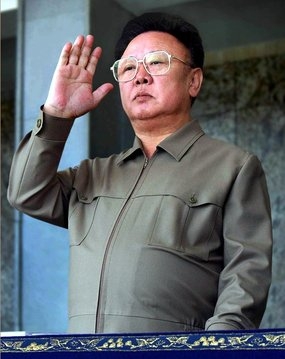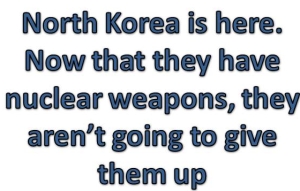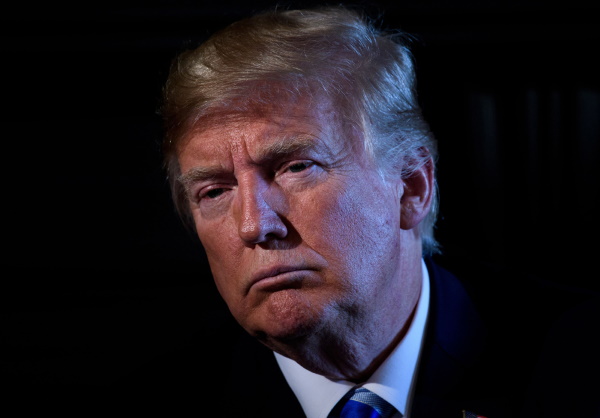
By Bill Starlin
Imagine a mushroom cloud of smoke, a flash of light, and tens of thousands of people dying. Imagine millions of square feet of land rendered useless for generations and people in a thousand mile radius getting toxic fallout; cancer within slowly eating away at their bodies and poisoning their gene pool.
You don’t have to imagine it. Hiroshima and Nagasaki have already lived through such a scenario. And while the dropping of both atomic bombs effectively ended World War II, it was the opening salvo in a Dr. Suessian Butter Battle Book race of brinksmanship and posturing, the like of which the world has never seen.
For the last half century or so, while the major powers have stockpiled enough nuclear weapons, slowly but surely, smaller nations entered into the discussion. Generally speaking, these nations of nuclear might correlated with the largest economic powers as the UK, France, and China joined the group of established nuclear powers, each with the idea that as economies rise and fall and politics change, remaining militarily relevant was key.
Although it exists on the opposite side of the world and is physically bound by China and Russia, North Korea has been the object of US enmity for decades following the 1953 armistice that ended the Korean War. In the post Cold-War world, it has found itself in relative political isolation, never actually signing a peace treaty with South Korea and generally not recognizing United Nations dictates regarding its actions. As a nation it espouses a doctrine of self reliance and as such, it does not bother to maintain cooperation or coordination with any sovereignty outside of China, Russia and regional allies, be it Canada, the United States, Britain or the European Union.
The advent of its nuclear manifestation however, has exacerbated already tenuous relationships. North Korea has its first nuclear test in October of 2006. That action led to harsh economic sanctions from the United States and others in the region, including a freeze of North Korean assets held in a Chinese bank. In summary, since their arrival at the nuclear stage, North Korea has been dealt with using different gloves. While the surrounding countries may not be comfortable with its capability, they can no longer afford to posture to a nuclear country. They possess the fourth largest military in the world and a national identity that is inherently resistant to outside control and bully tactics.
With the cowboy politics of the Bush/Cheney White House no longer prevalent, we have the opportunity for a true change in American diplomacy. The heavy handed approach is not the way, as we’ve seen in recent weeks, as North Korea has not only test fired six nuclear weapons, but also has withdrawn from the Six Party talks with Japan, Russia, The US, China and South Korea. With troops already deployed on two fronts, Russian unrest with former Soviet satellite Georgia, and a growing situation in Pakistan with the Taliban, the US cannot afford to make threats it cannot carry out. Now is where the supposed “change” of Obama can expressly manifest.
As shown in his first trip abroad, Obama has demonstrated an innate ability to communicate with inclusion; to deliver authority with an olive branch rather than a pistol. He has shown a keen interest in not only delivering American doctrine, but listening and at least on the surface building coalition on a global scale.
North Korea is here. Now that they have nuclear weapons, they aren’t going to give them up, because that would severely hamper their bargaining posture. America cannot invade, they cannot militarily threaten, but they are provided with the opportunity to change the way they handle these instances.
By maneuvering China and Russia into the conversation and eschewing responsibility for the region to them, the US can, at least militarily escape some of the burden for keeping North Korea honest. They can also elude the necessity of making threats that would diminish their esteem when they can’t be carried out forcibly.
Ask yourself, which is better if you are trying to police a situation: to paint yourself into a corner making a threat you can’t hope to carry out, or to enable yourself the flexibility to get back up and contain a situation? That answer, moving forward is the key to American Diplomacy in the 21st century. With this first test, the United States can forge a new doctrine which would enable it to continue its status as the preeminent world power while limiting its responsibility as the global policeman. By cautiously opening lines of communication, maintaining the balance of power in the region, while engaging in true discourse, America can share responsibility and reduce its exposure. That, in itself, would be change you could believe in.
Good day, and good luck
-Bill
Follow us on Twitter @ http://Twitter.com/PlanetIll
Bill Starlin can be reached vis E-mail @ Billstarlin@yahoo.com





One thought on “North Korea: The End of Bully Politics”